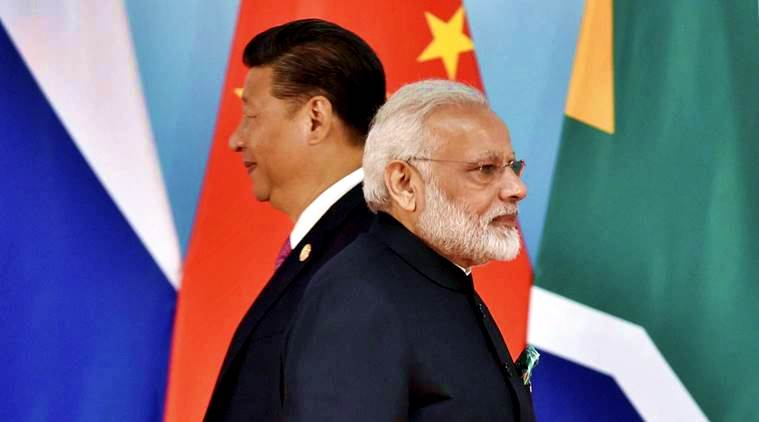The recent hesitation was displayed at the Quad meeting held in Tokyo with foreign ministers of Australia, India, Japan and the US were present. At the event, Indian Foreign Minister, S Jaishankar without slamming or even naming China emphasised on the importance of “coordinated response”.
Three of the Quad members refrained from naming China, however, US Secretary of State Mike Pompeo didn’t hold back. He called China an aggressor in the “South [China Sea], in the East China Sea, the Mekong, the Himalayas, the Taiwan Straits.”
Analysts have raised questions on Prime Minister Narendra Modi’s silence on the issue as well.
The opposition has also criticised the Prime Minister after he issued a warning without naming China and Pakistan, in his Independence Day speech, saying that the Indian armed forces deployed along the borders with the two neighbours have given a befitting reply to those who sought to challenge India’s sovereignty.
Congress’ chief spokesperson Randeep Singh Surjewala while praising the armed forces also asked why the Prime Minister is scared to name China.
“We must also think about why our rulers are scared of taking China’s name. Today, when China has occupied our territory we must ask the government how it proposes to push the Chinese forces back and protect our territorial integrity,” he said.
In another development, the Ministry of Defence has taken down all the monthly reports since 2017. The reports included those relating to the period of the Doklam crisis in 2017 which hadn’t mentioned the standoff between Indian and Chinese troops, reported The Indian Express.
As reported earlier by EurAsian Times, the official document on the ministry’s website that talked by “unilateral aggression” by China in Eastern Ladakh was vanished from Ministry of Defence’s website, two days after it was published.
This was the first time any official document had admitted of the “Chinese aggression”, since tension near the LAC started in May and escalated into a violent clash in decades between the neighbours on June 15, when 20 Indian soldiers were killed in the line of duty.
Samir Patil, an international security affairs expert at Mumbai-based foreign policy think-tank Gateway House, talking to BBC stated that PM Modi has put so much political capital on relations with China that tomorrow if India is forced to negotiate with China, then he will have room to prove his diplomatic skills.
He also emphasised that Chinese President Xi Jinping hasn’t made any statement about India till now. “We have seen many statements from the Chinese Foreign Ministry against India, in which they have accused the Line of Actual Control against India for violating it, but such statements have not come from the big leaders of China,” said Patil.
“There is tension in the relationship between the two countries but the relationship is not broken or they both have not formally declared war,” he added.
A stark difference can be seen in how the top brass of the government talk about Pakistan. Last year after the Balakot strike, PM Modi in one of his rallies used the phrase “Ghar mein Ghus ke maarenge” (We’ll enter their home and strike) which later became a campaign slogan for his party.
The question still remains whether New Delhi’s hesitation to slam China is on account of diplomacy or its inability.
































